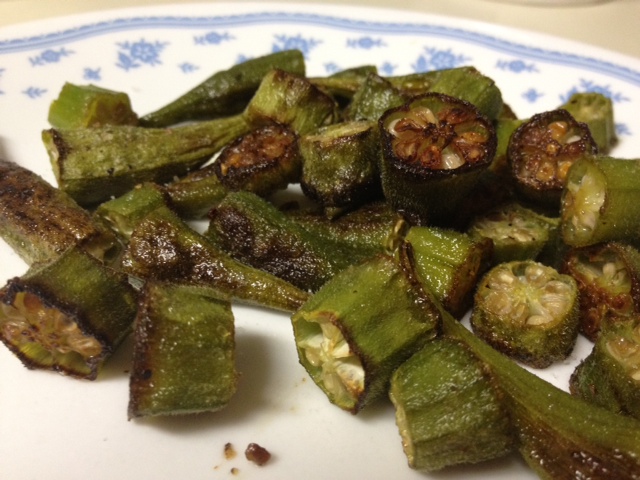Okra Can Be More Than Just Fried
TEXARKANA, Ark. –
With a visit to the farmers markets or roadside stand, you will likely find okra. It’s a popular vegetable we are accustomed to seeing during these hot summer months. Many purchase it to make a favorite gumbo recipe, put in a summer salad, or make a southern favorite, fried okra.
What should I look for when buying okra?
When buying fresh okra, look for firm, brightly colored pods under 4 inches long. The pods must be harvested when they are very young. Larger pods may be tough and fibrous. Avoid those that are dull in color, limp or blemished.
After your purchase, refrigerate unwashed, dry okra pods in the vegetable crisper, loosely wrapped in perforated plastic bags. Wet pods will quickly mold and become slimy.
Okra has a short shelf life, usually only two or three days. When the ridges and tips of the pod start to turn dark, use it or lose it. Once it starts to darken, okra will quickly deteriorate.
Is okra nutritious?
Okra is a powerhouse of valuable nutrients, and contains only 25 calories per one half cup. Nearly half of the nutrients are soluble fiber in the form of gums and pectins. Soluble fiber helps to lower serum cholesterol, reducing the risk of heart disease. The other half is insoluble fiber which helps to keep the intestinal tract healthy, decreasing the risk of some forms of cancer, especially colorectal cancer. Nearly 10% of the recommended levels of vitamin B6 and folic acid are also present in a half cup of cooked okra.
Okra exudes a unique juice which is responsible for its thickening power in the famous Louisiana Creole gumbo dish. Aside from gumbo, okra compliments tomatoes, onions and corn, as well as shellfish and fish stock. It has a subtle taste, similar to the flavor of eggplant.
Can I store okra long term?
If you love okra, freezing is the best method for long-term home storage. Freeze only young, tender okra. Okra must be blanched before freezing, as with all vegetables. Unblanched okra will quickly become tough and suffer huge nutrient, flavor, and color loss during freezing. Follow the procedure outlined below for successful home freezing.
It’s important to remember that freezing does not improve the quality of any vegetable; you must start with fresh green pods. Okra that is at peak quality for eating is best for freezing. Select young tender pods; wash and remove stems at the end of the seed cells, being careful not to expose the seed cell. Water blanch small pods for 3 minutes. Cool promptly in an ice bath for another 3 minutes and drain. Leave whole or slice crosswise. Package in freezer quality containers or baggies, leaving 1/2 inch headspace. Seal container, label and freeze for up to one year.
Purchase fresh, locally grown okra at the market and try this recipe for roasted okra! This is a change of pace from the normal fried okra. It still tastes good and is better for your health. This recipe contains only 65 calories, 5 grams fat, 6 carbohydrates, and 3 grams dietary fiber.
Roasted Okra
- 18 fresh okra pods 4 inches or less, sliced 1/3 inch thick
- 1 tablespoon olive oil
- Salt and pepper to taste
- Preheat oven to 425 degrees.
- Spray a cookie sheet with non-stick cooking spray and arrange okra slices in one layer.
- Drizzle with olive oil and sprinkle with salt and pepper.
- Bake for 10 to 15 minutes.
For more information, contact the Miller County Extension Office, 870-779-3609 or visit us in room 215 at the Miller County Courthouse.
By Carla Due
County Extension Agent - FCS
U of A System Division of Agriculture
Miller County Cooperative Extension Service
400 Laurel Street, Suite 215 Texarkana AR 71854
(870) 779-3609
cdue@uada.edu
